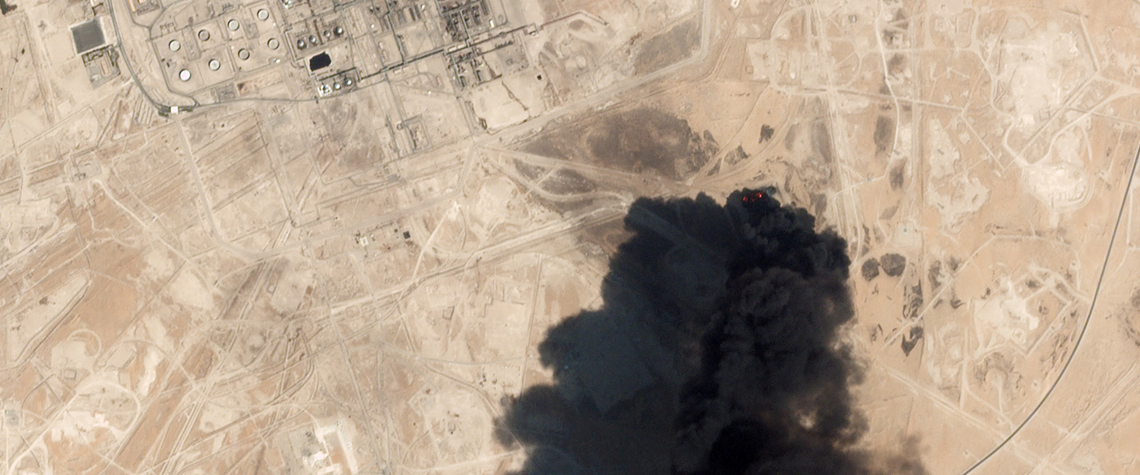Oil and trouble in the Gulf
Gulf producers learn that regional instability no longer guarantees high oil prices
The September attacks on Saudi Aramco’s Abqaiq processing plant and Khurais oil field—which took out about half the kingdom’s production—was the most serious in a string of destabilising developments in the Middle East during the summer and early autumn: the seizure of oil tankers; attacks on tankers; the sacking of the Saudi oil minister; riots in Iraq and Egypt; an acceleration of Iranian uranium enrichment; the Turkish invasion of northern Syria. Under normal circumstances, any one of these events could have triggered a prolonged spike in oil prices. After the Abqaiq/Khurais attacks, the price rose by about 20pc, but not for long. The average Brent spot price for that week was just over

Also in this section
25 July 2025
Mozambique’s insurgency continues, but the security situation near the LNG site has significantly improved, with TotalEnergies aiming to lift its force majeure within months
25 July 2025
There is a bifurcation in the global oil market as China’s stockpiling contrasts with reduced inventories elsewhere
24 July 2025
The reaction to proposed sanctions on Russian oil buyers has been muted, suggesting trader fatigue with Trump’s frequent bold and erratic threats
24 July 2025
Trump energy policies and changing consumer trends to upend oil supply and demand








